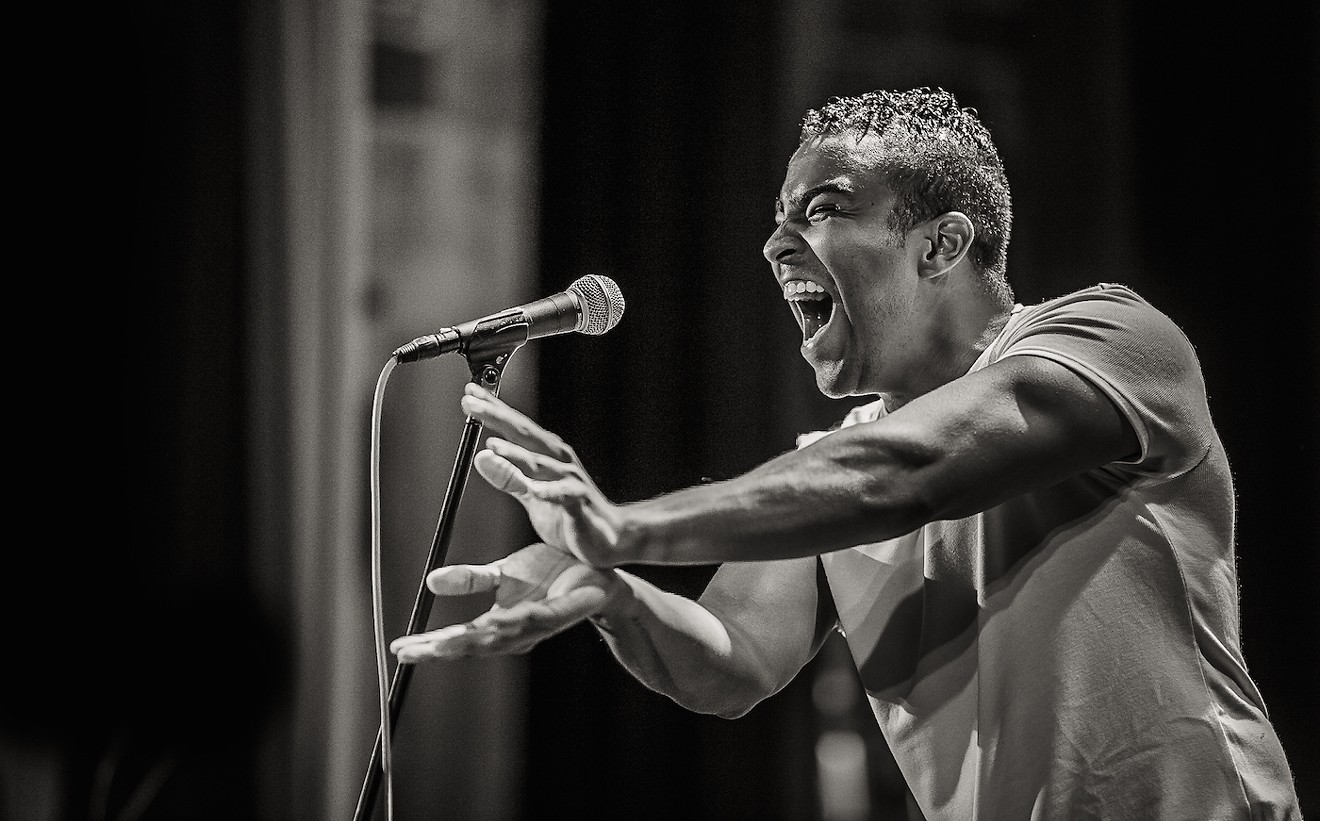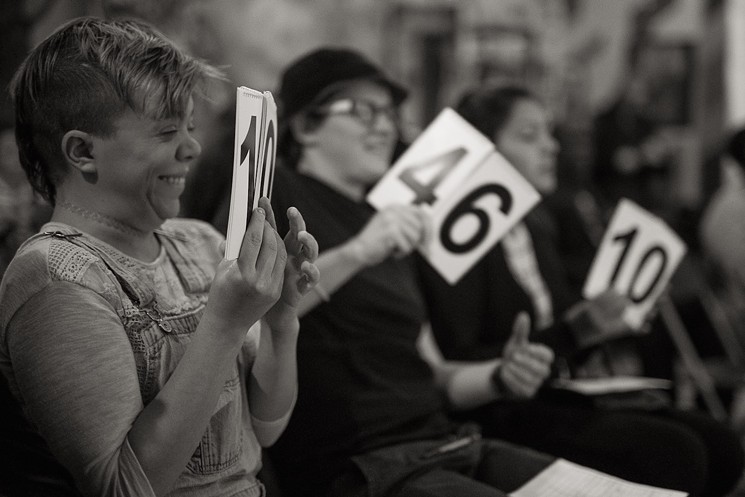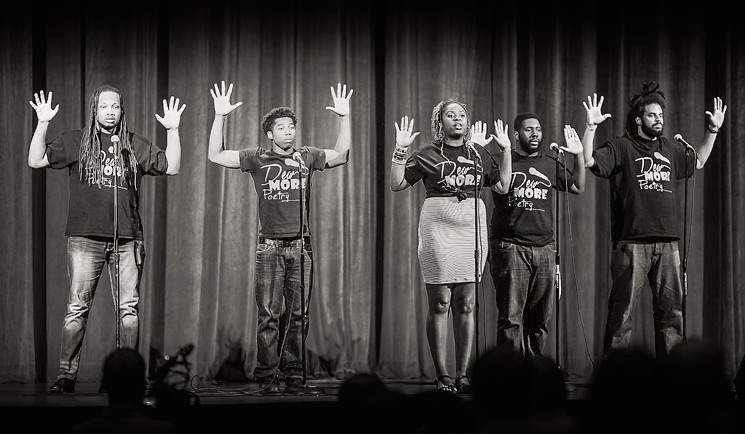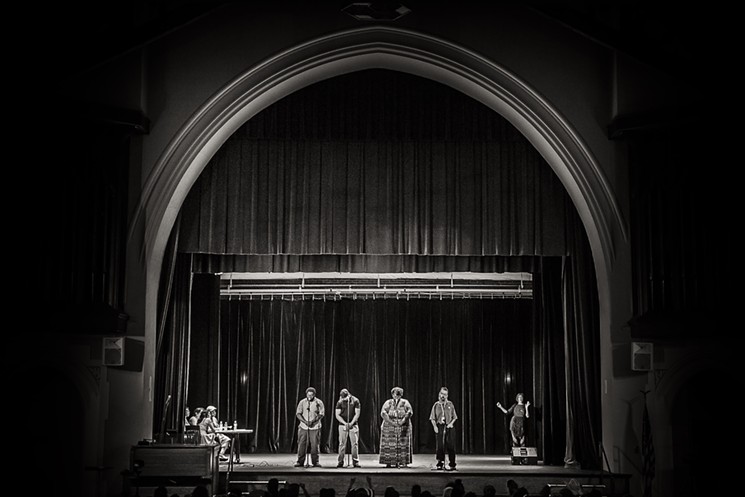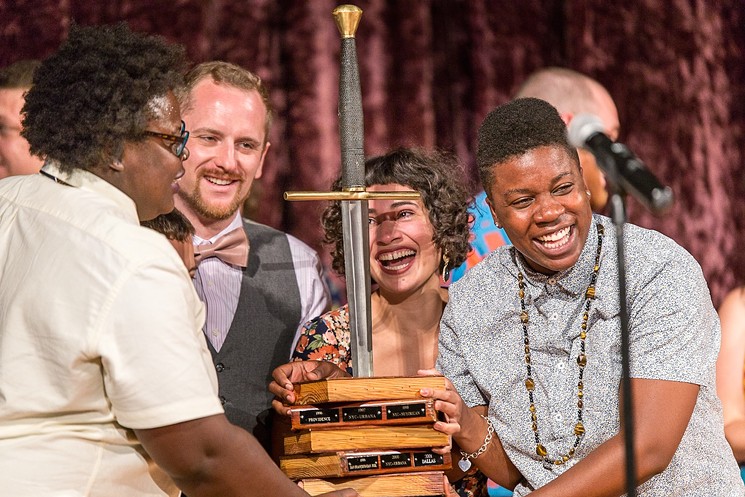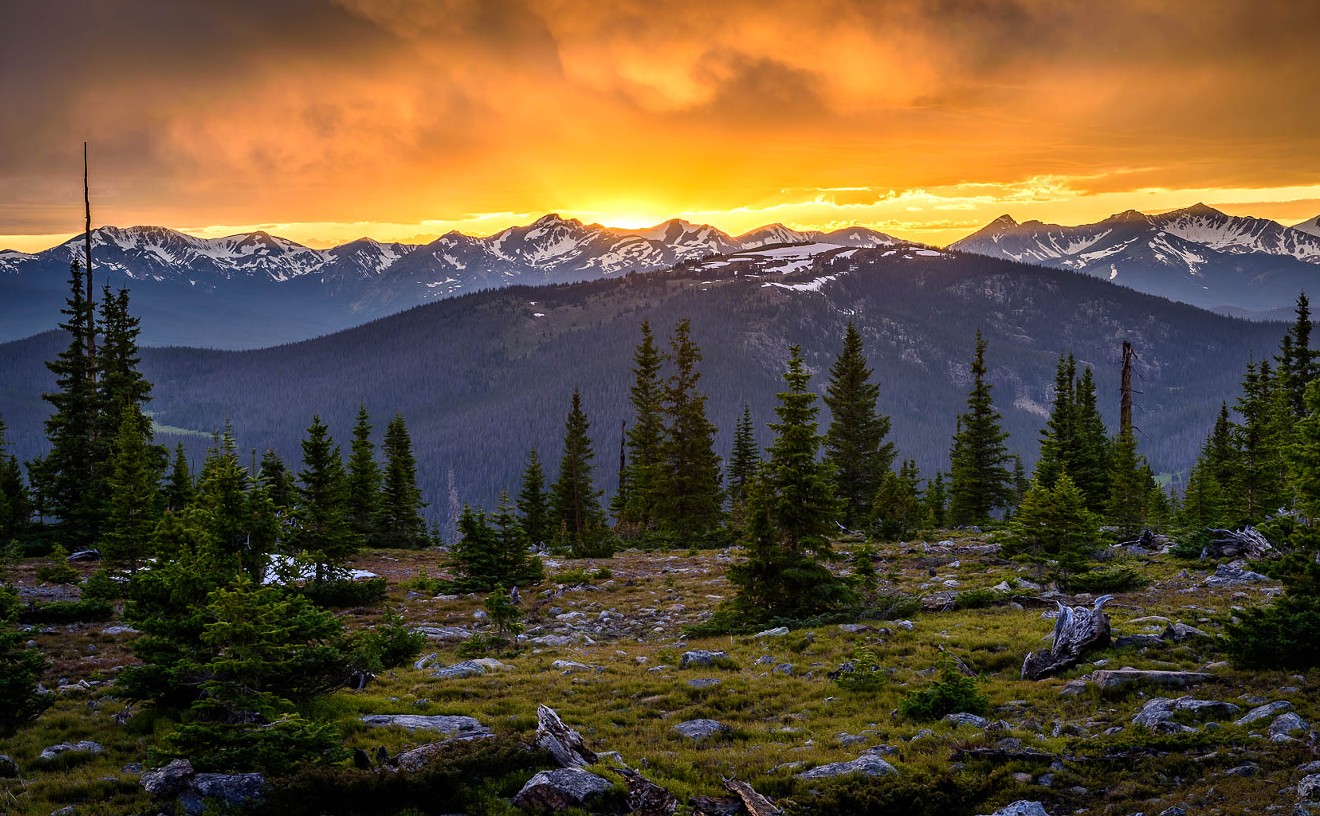At least 400 poets have descended on Denver, heads full of memorized verses, for the National Poetry Slam. In 2015, Denver was announced as one of four anchor cities for the poetry competition, meaning that the event will cycle back through in 2022. For those who can't distinguish a slam poem from a verbal fistfight or the recitation of iambic pentameter, or simply readers curious about what to expect, Westword got on the phone with National Poetry Slam Executive Director Suzi Q. Smith and her right-hand woman in planning the event, local poetry and art advocate Danielle Brooks, to demystify slam poetry. Here are ten pointers for this year's National Poetry Slam.
A poetry slam is not a Whitman aficionado's equivalent of a rap battle.
Smith describes the National Poetry slam as "basically the performance-poetry Olympics," but that doesn't mean it's aggressive. Slam poetry evolved in the 1980s in Chicago, and it's a broad category that encapsulates any sort of original poetry performed at a slam. In Brooks's words, slam's "the art of competing with your original spoken-word performance poetry."
You — yes, you — could be a judge.
Since slam is a contest, that means that each piece receives a numerical score determined by five random audience members (who aren't allowed to directly engage with the performers otherwise). Because judges could have hypothetically wandered into the slam to take shelter from the rain or because they were lost on their way to the Paramount (though in this case, the finals are ticketed), the idea is that it's not the most smooth enjambment or cleverest rhyming that necessarily wins: it's how the poem's performance affects the audience.
This isn't the WASP-y poetry you read in high school English class.
Slam and spoken-word poetry are vulnerable, often centering around personal experience, with heavy doses of social justice and also humor (the winners of the biggest teen slam, Brave New Voices, won with "Ode to Soulja Boy"). The art form "gives people with a message a platform," says Brooks. Unlike the traditional poetry establishment, with its chapbooks and ladder of prestigious journals, slam has no gatekeepers, which Smith think results in poets with more marginalized identities having the chance to share their stories. Across the board, those who participate in slam poetry have "a very intense need to say something and feel heard and seen," she says.
"No gatekeepers" doesn't mean these poets aren't brilliant at what they do.
This isn't an open mic where you can stroll in seven minutes late, order a cafe au lait and then read a poem off your phone. Nor is it an elite clique where performers gain metaphorical slam-poetry varsity jackets that guarantee eternal entry to this slam stage. You have to compete to reach the National Poetry Slam on the local circuit all year, scoring high in various slams in your city before becoming one of the representatives on that city's team. Most of the performers at National Poetry Slam have received payment for their performances, although a smaller fraction (maybe a fifth, estimates Smith) exclusively focus on poetry as their day jobs. So expect to see writers pacing the sidewalks, whispering lines under their breath as they rehearse, one last time, gearing up for a performance they've been working toward all year.
The pool is international this year.
Eighty teams will take the stage, including those from Australia (is it bad to score based on accents alone?) and Canada. Each team of five may include alternates, who sub in when the demands of traveling or performing prevent a higher-scoring poet from attending.
The defending champs are back.
Given the competitive selection of teams, it's rare for the same five poets to compete together multiple times. But last year's slam champions, Baltimore's Team Slammageddon, is the exception, and it's ready to defend its throne.
Audience, warm up your vocal chords.
"Come ready to participate," instructs Smith, because slam is a community-oriented art. Heckling is a faux pas, but a "grunt-moan" if a line resonates shows support. There are also call-and-response traditions that might catch a newcomer off-guard. (When Slam Nuba members say the team's name, don't be alarmed if the audience cheers, "We cut heads!") If you disagree with a judge's evaluation of a team, booing is permitted.
There are on-stage rules, too.
Each team has three minutes per round. That's it. Musical accompaniment, props and nudity are prohibited.
You can get involved (it's free!).
According to organizer Smith, this year's event includes "more programming than any National Poetry Slam ever has," from affinity group open mics (for those who identify as disabled or indigenous, for instance) to sessions on how to make money as a touring poet. Of course, a variety of writing workshops are sprinkled in, too, for those looking to hone their craft.
Its organizers love poetry, and you should, too.
If these words don't inspire you, what will? In Smith's words, "I love poetry because it can say the unsayable thing. It's specific and intentional and careful language. And I believe that words are really, really powerful. It's the most potent form of language that we have." Adds Brooks: "There's something invigorating, encouraging, refreshing about not only speaking your own truth, but hearing those from others and seeing how much freedom they get from it.... Poetry in its innate form is life-saving, in my opinion."
The National Poetry Slam runs through August 11 at various venues around Denver. For a full schedule and tickets, visit the National Poetry Slam online. The finals, August 12 at 7 p.m. at the Paramount Theater, will be hosted by SlamNuba co-founder Ken Arkind and will feature performances from Denver poets Dominique Christina and Andrea Gibson.
[
{
"name": "Air - MediumRectangle - Inline Content - Mobile Display Size",
"component": "12017618",
"insertPoint": "2",
"requiredCountToDisplay": "2"
},{
"name": "Editor Picks",
"component": "17242653",
"insertPoint": "4",
"requiredCountToDisplay": "1"
},{
"name": "Inline Links",
"component": "18838239",
"insertPoint": "8th",
"startingPoint": 8,
"requiredCountToDisplay": "7",
"maxInsertions": 25
},{
"name": "Air - MediumRectangle - Combo - Inline Content",
"component": "17261320",
"insertPoint": "8th",
"startingPoint": 8,
"requiredCountToDisplay": "7",
"maxInsertions": 25
},{
"name": "Inline Links",
"component": "18838239",
"insertPoint": "8th",
"startingPoint": 12,
"requiredCountToDisplay": "11",
"maxInsertions": 25
},{
"name": "Air - Leaderboard Tower - Combo - Inline Content",
"component": "17261321",
"insertPoint": "8th",
"startingPoint": 12,
"requiredCountToDisplay": "11",
"maxInsertions": 25
}
]

